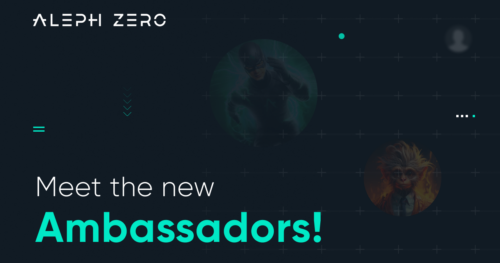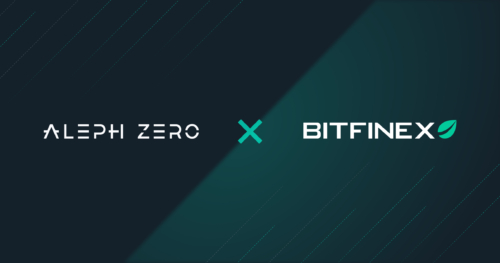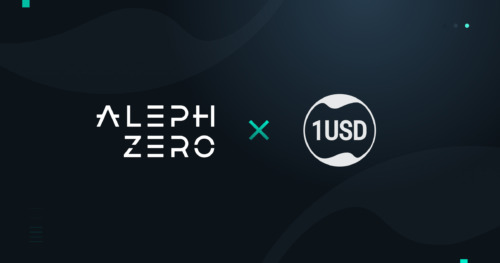Aleph Zero Monthly Update: April 2022
May 2, 2022
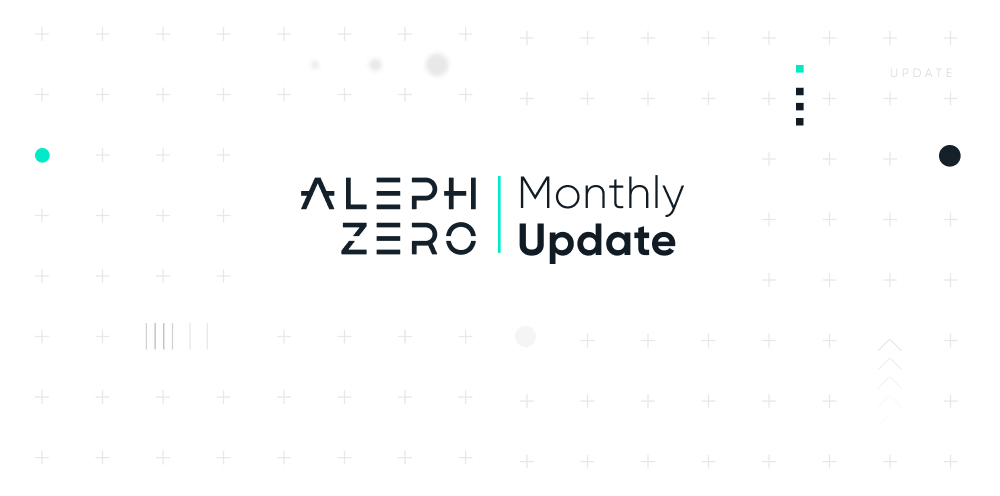
Over the past month, the team behind Aleph Zero focused on introducing improvements to the testnet, upgrading the smart contract pallet to feature a new version of Ink! language, and, most importantly, bringing staking to the mainnet. Read on to learn more about what’s been going on!
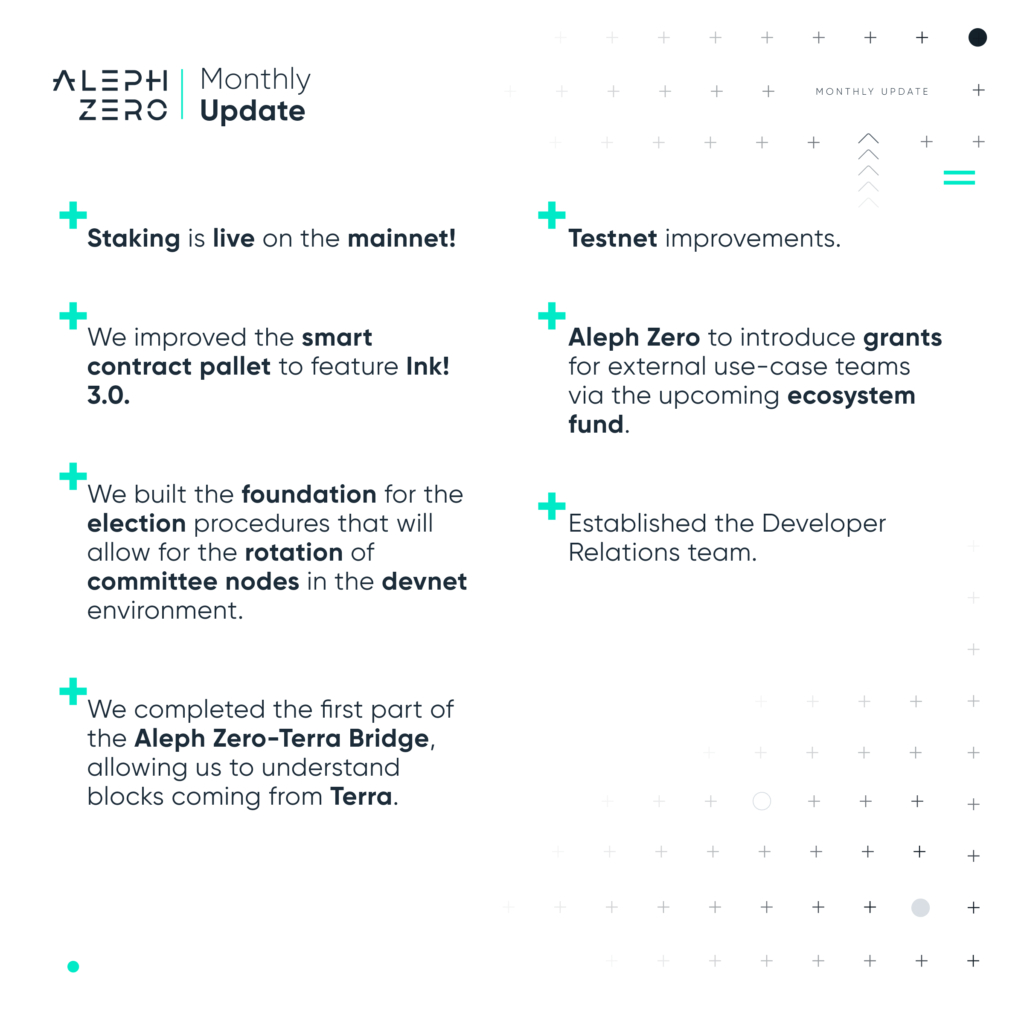
Staking Is Live on the Mainnet
Back in March, we managed to successfully launch staking on the testnet. Since then we haven’t rested on our laurels and proceeded to work on several performance improvements that eliminated minor slowdowns of the chain at the beginning of each new era.
59% of the entire circulating supply staked within five days
These refinements made us confident that the feature is primed for a mainnet launch, which successfully occurred on the 27th of April. We’re happy to report that this development resulted in a massive community interest, with 59% of the entire circulating supply being used for nominations within just 5 days.
Improving the Smart Contract Pallet
Due to the release of Ink! 3.0 we’ve been able to update the smart contract pallet on our Smartnet to reflect the most current version of the language. We’ve also redesigned the accompanying tutorials (which became outdated, as this change was not backward-compatible), and started work on more involved examples of smart contracts. This is a particularly exciting development, as it means that the smart contract pallet has reached the form in which it will be soon deployed on the testnet, and ultimately to the mainnet.
Laying the Foundation for Election Procedures
We implemented the first working version of the election procedure, which still requires some work on corner cases, but will allow for the rotation of committee nodes in the devnet environment. Besides that we’re finalizing our node setup tutorial, making sure that it offers future validators a simple and user-friendly experience.
Completed the First Part of the Aleph Zero-Terra Bridge
We finished the first part of the bridge residing on the Aleph Zero chain, i.e., a light client that is able to understand blocks from Terra. Thanks to the progress in coding the relayer we are very close to having the technical possibility of sending one-way messages. As a bridge is a novel, complex and security-critical component, we’ll wait for its deployment until both directions are finished, and most probably we’ll deploy it first in a separate ‘sidenet’ akin to the current Smartnet. Additionally, we’ll want to have the results audited before deploying it on the mainnet, which will probably take more than a month (which is our usual period for mainnet deployment of features deployed on the testnet).
Testnet Improvements
To make the testnet more effective at identifying potential bugs that may later hamper the mainnet’s performance we created a much more elaborate bot framework for overloading the testnet with various calls and requests. Some of you may have observed bigger transaction volumes going through the testnet from time to time – that was us making sure that the new features can withstand various versions of resource-exhaustion attacks.
Preparing to Introduce Grants via Ecosystem Fund
We’ve been approached by teams looking to build on Aleph Zero for a while now, and we can’t wait to be able to provide a larger-scale support to everyone interested in building on the network. With several applications already in early-stage development, we’re establishing a broader approach to ecosystem growth. Not only are we focused on the framework of collaboration—but we were also lucky enough to onboard wonderful new team members who will be responsible for assisting projects seeking to utilize Aleph Zero’s technological and business capabilities. We expect to be able to reveal more details on the planned ecosystem growth soon!
